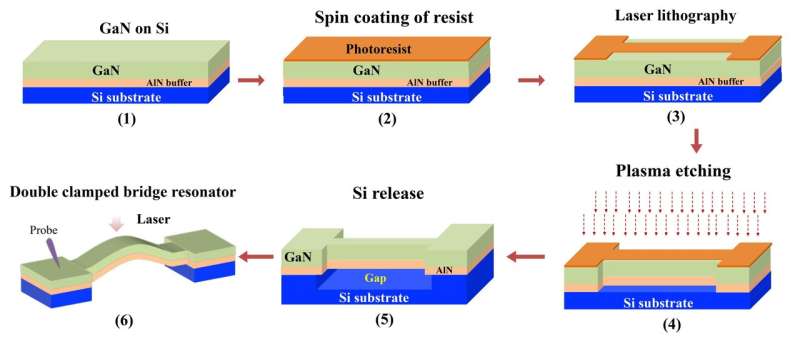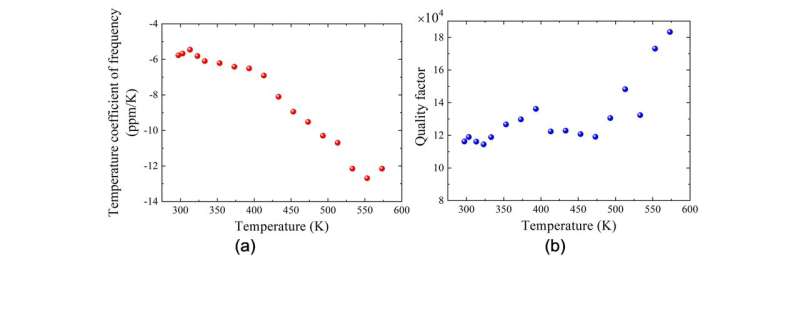#Newly developed GaN based MEMS resonator operates stably even at high temperature

“#Newly developed GaN based MEMS resonator operates stably even at high temperature”

Liwen Sang, independent scientist at International Center for Materials Nanoarchitectonics, National Institute for Materials Science (also JST PRESTO researcher) developed a MEMS resonator that stably operates even under high temperatures by regulating the strain caused by the heat from gallium nitride (GaN).
High-precision synchronization is required for the fifth generation mobile communication system (5G) with a high speed and large capacity. To that end, a high-performance frequency reference oscillator which can balance the temporal stability and temporal resolution is necessary as a timing device to generate signals on a fixed cycle. The conventional quartz resonator as the oscillator has the poor integration capability and its application is limited. Although a micro-electromechanical system (MEMS) resonator can achieve a high temporal resolution with small phase noise and superior integration capability, the silicon (Si)-based MEMS suffers from a bad stability at higher temperatures.
In the present study, a high-quality GaN epitaxial film was fabricated on a Si substrate using metal organic chemical vapor deposition (MOCVD) to fabricate the GaN resonator. The strain engineering was proposed to improve the temporal performance. The strain was achieved through utilizing the lattice mismatch and thermal mismatch between GaN and Si substrate. Therefore, GaN was directly grown on Si without any strain-removal layer. By optimizing the temperature decrease method during MOCVD growth, there was no crack observed on GaN and its crystalline quality is comparable to that obtained by the conventional method of using a superlattice strain-removal layer.

The developed GaN-based MEMS resonator was verified to operate stably even at 600K. It showed a high temporal resolution and good temporal stability with little frequency shift when the temperature was increased. This is because the internal thermal strain compensated the frequency shift and reduce the energy dissipation. Since the device is small, highly sensitive and can be integrated with CMOS technology, it is promising for the application to 5G communication, IoT timing device, on-vehicle applications, and advanced driver assistance system.
This result was presented at the IEEE International Electron Devices Meeting (IEDM2020) held online on December 12-18, 2020, titled “Self-Temperature-Compensated GaN MEMS Resonators through Strain Engineering up to 600 K.”
More information:
Self-Temperature-Compensated GaN MEMS Resonators through Strain Engineering up to 600 K. IEEE International Electron Devices Meeting, Session 26, December 16, 2020
Provided by
Japan Science and Technology Agency
Citation:
Newly developed GaN based MEMS resonator operates stably even at high temperature (2021, January 15)
retrieved 15 January 2021
from https://techxplore.com/news/2021-01-newly-gan-based-mems-resonator.html
This document is subject to copyright. Apart from any fair dealing for the purpose of private study or research, no
part may be reproduced without the written permission. The content is provided for information purposes only.
If you liked the article, do not forget to share it with your friends. Follow us on Google News too, click on the star and choose us from your favorites.
For forums sites go to Forum.BuradaBiliyorum.Com
If you want to read more Like this articles, you can visit our Science category.


